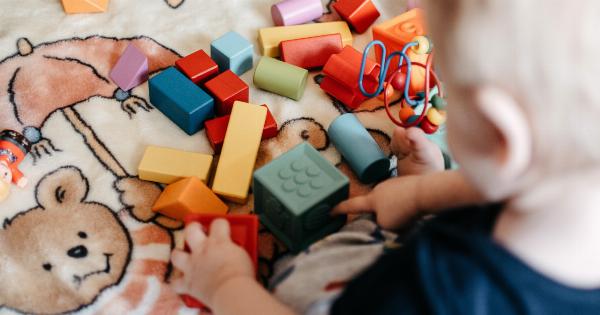Playtime is an essential part of a child’s development. It not only provides them with enjoyable experiences but also helps them learn new skills, develop social connections, and explore their creativity.
As parents, it is important to create a child-friendly playtime environment that is safe, engaging, and educational. In this article, we will discuss some valuable tips for parents to make playtime enjoyable and beneficial for their children.
1. Create a Safe Play Area
The first step in ensuring child-friendly playtime is to create a safe play area. Remove any potential hazards or objects that could pose a danger to your child. Use corner guards on furniture, secure heavy objects, and cover electrical outlets.
Also, ensure that the play area is free from small objects that could be a choking hazard.
2. Choose Age-Appropriate Toys
Select toys that are suitable for your child’s age and developmental stage. Age recommendations on toy packaging can guide you in choosing appropriate toys. Avoid toys with small parts for young children as they can be a choking hazard.
Toys that encourage creativity, problem-solving, and physical activity are ideal choices.
3. Rotate Toys
Children can quickly lose interest in the same toys. To keep playtime exciting and stimulating, rotate their toys regularly. Store some toys out of sight and bring them out after a few weeks.
This will give the impression of getting new toys and maintain your child’s interest.
4. Encourage Open-Ended Play
Open-ended play allows children to use their imagination and creativity to explore and engage with their toys. Avoid toys that have a single purpose or specific instructions.
Instead, opt for toys like building blocks, dolls, or play kitchen sets that can be used in various ways to encourage imagination and problem-solving skills.
5. Engage in Play with Your Child
Playing with your child not only strengthens your bond but also provides an opportunity for them to learn and develop. Get down to their level and actively participate in their playtime.
This will show them that their play is important, and they will be encouraged to explore and experiment with new ideas.
6. Set Aside Dedicated Playtime
With busy schedules, it is easy to overlook the importance of dedicated playtime. Set aside a specific time each day or week for focused playtime with your child.
This will ensure that playtime becomes a priority and allows for uninterrupted engagement and interaction.
7. Limit Screen Time
In today’s digital age, it is essential to limit screen time and create a balance between screen-based activities and other forms of play.
Excessive screen time can hinder a child’s development and adversely affect their physical and mental health. Encourage activities such as outdoor play, reading, creative play, and social interaction instead.
8. Foster Social Connections
Playtime is a great opportunity for children to develop social skills, such as sharing, taking turns, cooperation, and empathy.
Arrange playdates with other children of similar age to provide your child with opportunities to interact and learn from their peers. This will help them develop important social skills that will benefit them throughout their lives.
9. Explore Nature
Encourage outdoor play and exploration of nature. Spending time in nature has numerous benefits for children, including improved physical health, enhanced creativity, reduced stress, and increased cognitive abilities.
Take your child to local parks, nature trails, or simply play in your backyard to help them connect with the natural world.
10. Have Fun and Be Flexible
Above all, remember to relax, have fun, and be flexible during playtime. Let your child take the lead and follow their imagination. Playtime is not meant to be a rigid or structured activity; it should be a time for joy, discovery, and bonding.
Allow room for spontaneity and adapt to your child’s changing interests and needs.






























